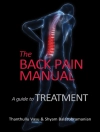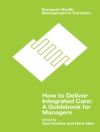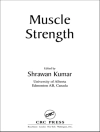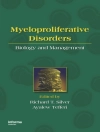This is the first volume on the subject of the alleviation of world suffering. At the same time it is also the first book framing the fields of global socio-economic development, world health, human rights, peace studies, sustainability, and poverty within the challenge of alleviating suffering and improving quality of life. Both international studies and global development have become specialized and fragmented, whereas this work assembles all of these development fragments together in order to determine whether common ground exists to make headway in reducing global suffering. Leading experts in these various fields of development and suffering have been recruited worldwide to give scholarly assessments of the major human problems and how they can be successfully tackled.
Tabla de materias
Sections/Topics.- 1 The human and humanitarian challenge of suffering (This topic includes philosophical and practical perspectives, the global geography of suffering and its relief, social solidarity, social responsibility for relief of suffering, collective action, empathic altruism, and interpersonal caring.).- 2 Quality of Life (QOL) research challenges (The topic includes issues such as “short term relief versus long term prevention, ’ negative versus positive QOL, level of analysis: global, national, community or individual and qualitative versus quantitative methods.).- 3 Improving global development, disaster recovery and poverty reduction (This topic includes minimizing income scarcity and eliminating extreme wealth inequality, improving global development institutions, expanding capability freedom especially among the poor, reducing hunger and improving food, water, and waste systems, reducing dysfunctional population growth and evaluating millennium development goals.).- 4 Improving health and healthcare institutions (The topic includes epidemiology, mental healthcare, end of life care, grief, family functioning, child well-being, caregiving.).- 5 Transforming violent conflict (This topic includes war, cruelty, oppression, slavery and other violence-related outcomes, peace, reparations, non-retribution, non-self-centered mindsets, nonviolent resolutions of suffering, reducing refugees and displacements, diasporas, gender inequality, insecurity, overpopulation, and social schisms based on race, religion, gender and gender identity.).- 6 Institutionalizing human rights, human dignity, and justice (The topic includes improving legal systems, reducing law violations (local and international), legal empowerment of excluded groups, e.g., racial and ethnic minorities, and other dignity-deprived social groups, promoting anti-corruption, shifting values toward social responsibility and the development of human capabilities for all.).- 7 Preventing future suffering(This topic includes mobilizing social support and social movements to alleviate suffering, improving global governance, promoting inter-nation coordination, international policy, ethics, morality, minimizing climate change and other environmental disasters, biodiversity, sustainability and sustainable development, exploring alternative solutions and priorities for the alleviation of world suffering, including cultural norms and political policies that justify the lack of compassion and social irresponsibility.).
Sobre el autor
Ronald E. Anderson is an emeritus professor of sociology at the University of Minnesota and has published nine books, over 100 articles, 150 presentations at professional meetings, 15 large research grants, and at least 40 consulting positions. For two decades, Ronald E. Anderson coordinated research on information technology in education in over 25 countries, publishing several books from that international project. To support his writing he established the Foundation for Relief of Suffering, a 501c3 nonprofit organization; and to disseminate his conclusions, he built and maintained the website World Suffering.org. The University of Minnesota has given him several small research grants during retirement to support his research on suffering.












